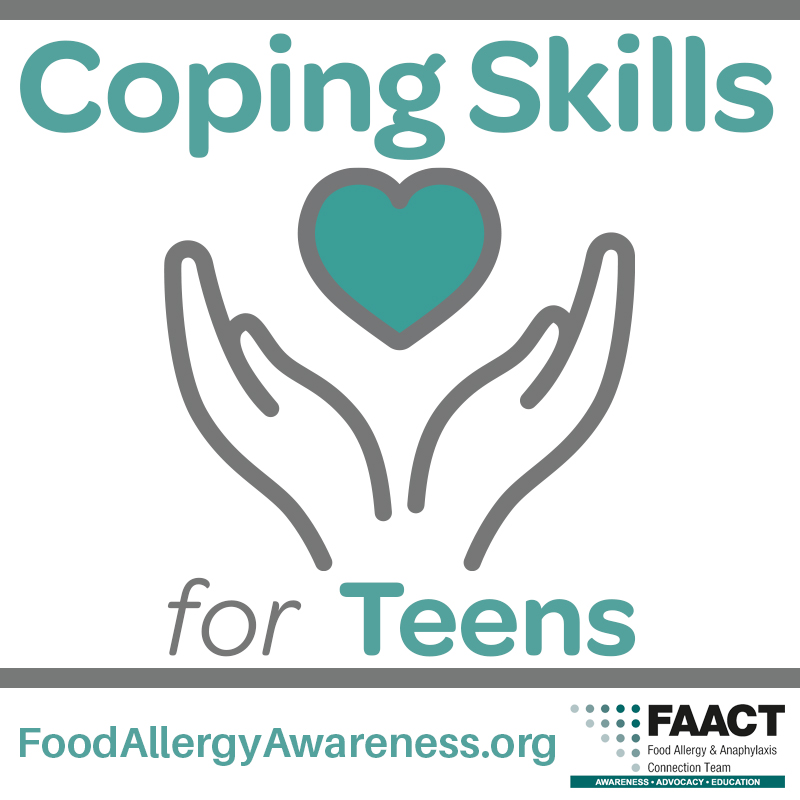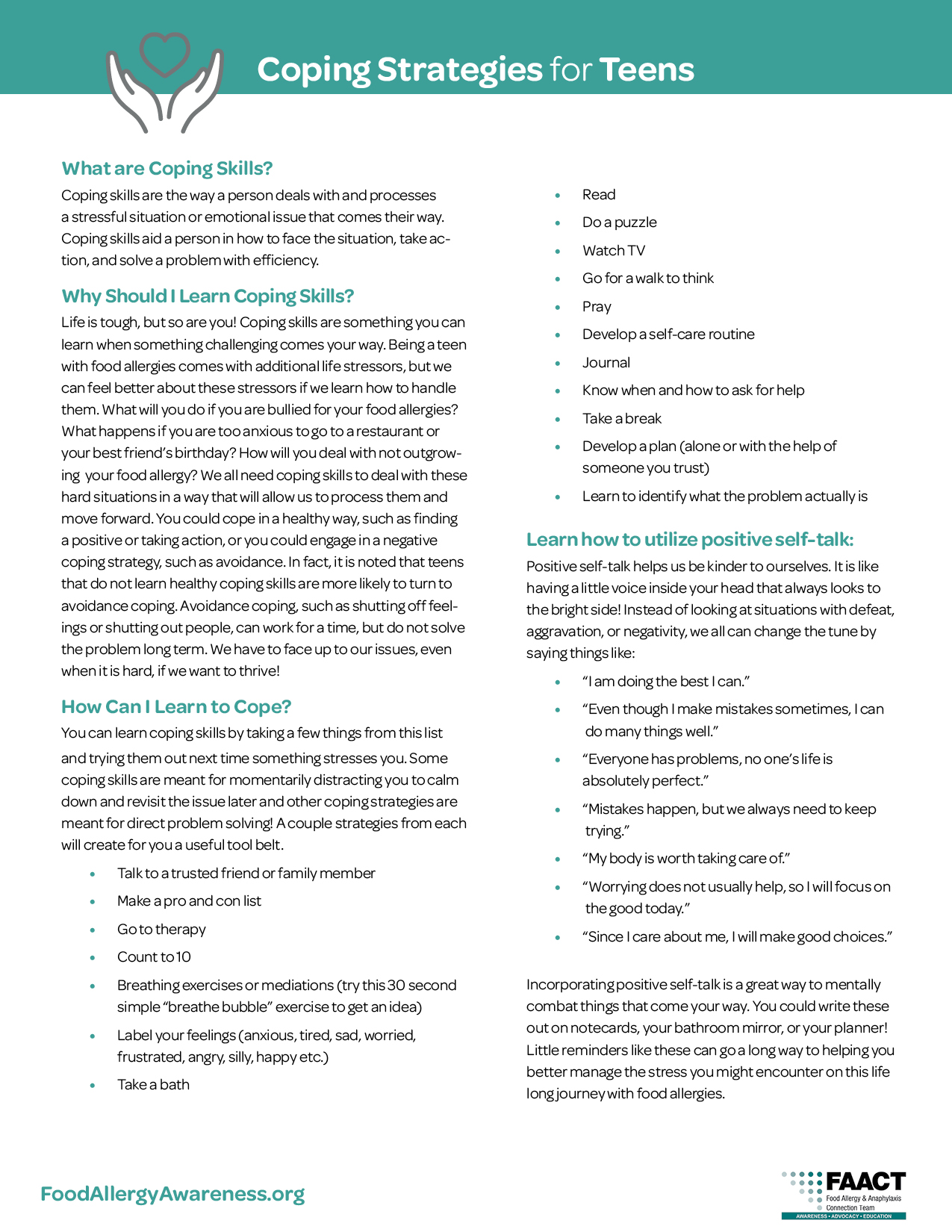Behavioral Health
Coping Skills
Back to Category View
Coping Skills for Teens
What are coping skills?
Coping skills are the way a person deals with and processes a stressful situation or emotional issue that comes their way. Coping skills aid a person in how to face the situation, take action, and solve a problem with efficiency.
Why Should I Learn Coping Skills?
Life is tough, but so are you! Coping skills are something you can learn when something challenging comes your way. Being a teen with food allergies comes with additional life stressors, but we can feel better about these stressors if we learn how to handle them. What will you do if you are bullied for your food allergies? What happens if you are too anxious to go to a restaurant or your best friend’s birthday? How will you deal with not outgrowing your food allergy? We all need coping skills to deal with these hard situations in a way that will allow us to process them and move forward. You could cope in a healthy way, such as finding a positive or taking action, or you could engage in a negative coping strategy, such as avoidance. In fact, it is noted that teens that do not learn healthy coping skills are more likely to turn to avoidance coping. Avoidance coping, such as shutting off feelings or shutting out people, can work for a time, but do not solve the problem long term. We have to face up to our issues, even when it is hard, if we want to thrive!
How Can I Learn to Cope?
You can learn coping skills by taking a few things from this list and trying them out next time something stresses you. Some coping skills are meant for momentarily distracting you to calm down and revisit the issue later and other coping strategies are meant for direct problem solving! A couple strategies from each will create for you a useful tool belt.
- Talk to a trusted friend or family member
- Make a pro and con list
- Go to therapy
- Count to 1
- Breathing exercises or mediations (try this 30 second simple “breathe bubble” exercise to get an idea)
- Label your feelings (anxious, tired, sad, worried, frustrated, angry, silly, happy etc.)
- Take a bath
- Read
- Do a puzzle
- Watch TV
- Go for a walk to think
- Pray
- Develop a self-care routine
- Journal
- Know when and how to ask for help
- Take a break
- Develop a plan (alone or with the help of someone you trust)
- Learn to identify what the problem actually is
Learn how to utilize positive self-talk:
Positive self-talk helps us be kinder to ourselves. It is like having a little voice inside your head that always looks to the bright side! Instead of looking at situations with defeat, aggravation, or negativity, we all can change the tune by saying things like.
- “I am doing the best I can.”
- “Even though I make mistakes sometimes, I can do many things well.”
- “Everyone has problems, no one’s life is absolutely perfect.”
- “Mistakes happen, but we always need to keep trying.”
- “My body is worth taking care of.”
- “Worrying does not usually help, so I will focus on the good today.”
- “Since I care about me, I will make good choices.”
Incorporating positive self-talk is a great way to mentally combat things that come your way. You could write these out on notecards, your bathroom mirror, or your planner! Little reminders like these can go a long way to helping you better manage the stress you might encounter on this life long journey with food allergies.
Download FAACT's Coping Skills for Teens handout.
